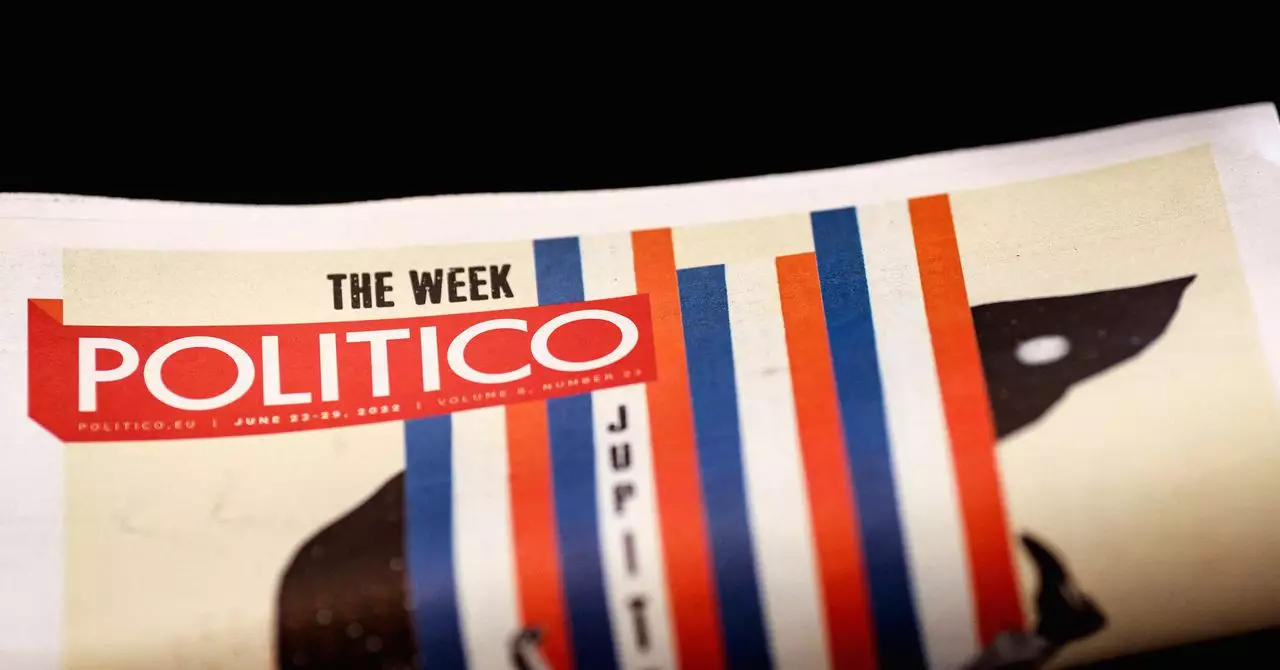The rapid influx of artificial intelligence (AI) into various industries, including journalism, is transforming the landscape at a breathtaking pace. One noteworthy development has occurred within the Politico newsroom, where the PEN Guild, representing journalists, has taken a formidable stand against management’s perceived violations of an AI provision in their union contract. This ongoing dispute can potentially redefine press freedoms and AI ethics in digital communication. As journalists grapple with the effects of machine-generated content, this situation serves as a litmus test for the ethical deployment of technology within media.
Setting a Precedent: Union Contracts and AI Policy
The PEN Guild’s case highlights a crucial ambiguity in the operational direction many newsrooms are currently pursuing. Last year, Politico became a trailblazer by being among the first media organizations to establish guidelines regarding the utilization of AI. Their objective was to integrate AI seamlessly into the newsroom while maintaining journalistic integrity. However, allegations from union members indicate that the mechanisms put in place for notifying and involving staff in the implementation of AI are far from robust. This discord could arguably delineate a clear boundary that impacts all future efforts toward incorporating AI in journalistic practices.
Union representatives claim that management’s reluctance to provide advance notice or engage in meaningful discussions highlights a significant power imbalance. This raises pressing questions about the retention of journalistic authority in an era dominated by algorithmic influence. The resolution of this dispute—set to unfold in arbitration—could well mold the operational guidelines for other media organizations across the nation in terms of AI incorporation.
The Impact of AI on Journalistic Quality and Ethics
Politico’s foray into AI has not been without controversy. The deployment of tools such as the Policy Intelligence Assistance package has drawn skepticism among staff, who argue that these technologies encroach upon tasks traditionally fulfilled by experienced human journalists. The fear is palpable: that machines might supersede the scrutinizing eye that ensures quality, accuracy, and ethical integrity in reporting.
One episode illuminating these concerns occurred during a live summarization of a political debate, where AI-generated language mirrored contentious and misleading phrases that would be unacceptable for human journalists. Such incidents sow distrust among staff regarding the oversight of AI content, prompting them to question the journalistic integrity underpinning the publication’s output. For a profession grounded in factual accuracy and ethical reporting, this predicament poses a grave dilemma.
Examining Ownership: Journalistic Values vs. Corporate Interests
At the crux of the disagreement lies a fundamental dissonance between journalistic values and corporate mandates. While Politico management emphasizes the need for innovation in delivering content to a rapidly changing audience, union members feel that journalists should wield a considerable say in shaping the ethical frameworks surrounding AI. This friction raises essential issues about editorial independence and the potential commodification of news in an AI-driven future.
The absence of federal regulations surrounding AI usage in journalism only amplifies the urgency of this dispute. With union contracts being one of the few enforceable frameworks for establishing standards, the outcome of the PEN Guild’s arbitration case could set significant precedents. It is an illustrative case in the larger debate over who controls the narrative and how technology is leveraged in the name of profit versus journalistic integrity.
The Future Landscape of AI in Journalism
Should the PEN Guild emerge victorious, the ramifications of this legal dispute could reshape not just Politico’s operational model but the entire media sector’s approach to AI. The verdict could inspire other organizations to actively engage their journalists in discussions regarding technology implementation, thereby enforcing ethical considerations in every aspect of their production.
As industries navigate the complexities of AI, journalism must not merely adapt but assert its identity amid this digital revolution. Striking a balance between technological advancement and ethical accountability could empower the profession, ensuring that while AI can augment journalistic practices, it does not diminish the core values that underpin the trade. The future of journalism may indeed hinge on this pivotal moment, illustrating the need for respectful collaboration between human journalists and evolving technologies.


Leave a Reply